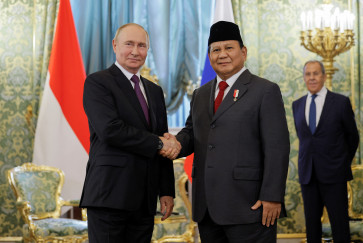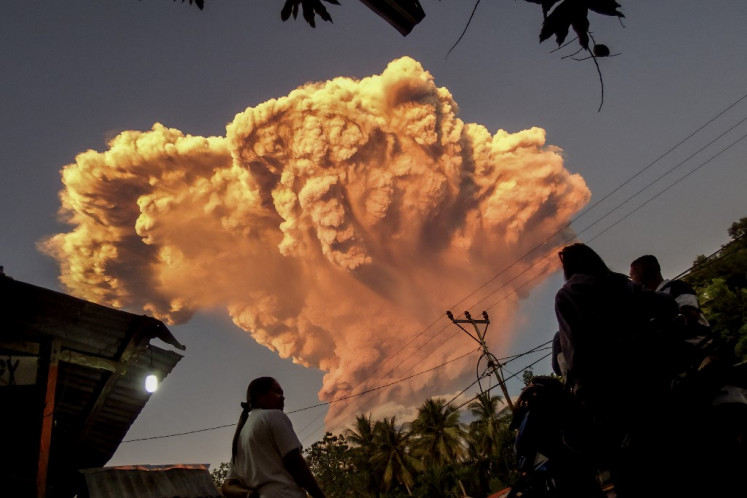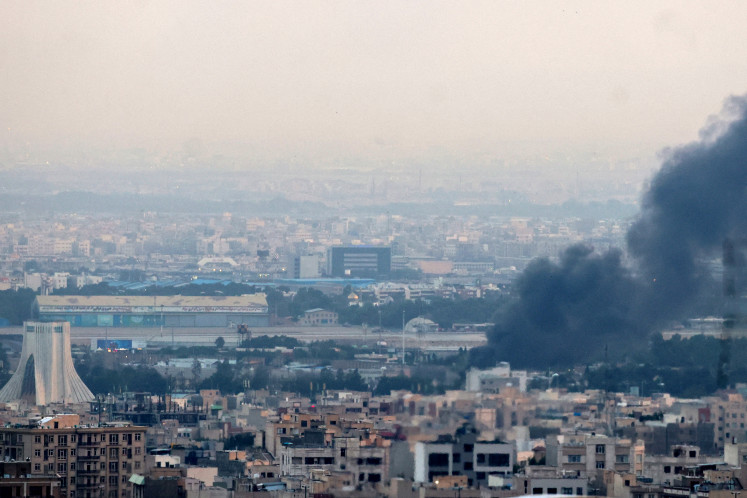Popular Reads
Top Results
Can't find what you're looking for?
View all search resultsPopular Reads
Top Results
Can't find what you're looking for?
View all search resultsBali Process challenged by rise in irregular migrants
The continuing increase in irregular migrants remains one of the main challenges for the Asia Pacific region despite the region’s ongoing efforts to address the issues of people smuggling, human trafficking and other related transnational crimes
Change text size
Gift Premium Articles
to Anyone

T
he continuing increase in irregular migrants remains one of the main challenges for the Asia Pacific region despite the region’s ongoing efforts to address the issues of people smuggling, human trafficking and other related transnational crimes.
“The numbers keep on rising despite our collective efforts in dealing with those crimes,” Hasan Kleib, the Foreign Ministry’s director general for multilateral affairs, said on Monday during the commemoration of the 10th year of the Bali Process on People Smuggling, Human Trafficking and Related Transnational Crime — a regional framework co-chaired by Indonesia and Australia.
Among the main causes of this rising trend is the fact that people smuggling and human trafficking are still lucrative crimes.
“According to the report by the United Nations Office on Drugs and Crime, criminals are estimated to generate around US$6.72 billion from the smuggling of migrants each year, from only two major routes: Africa to Europe and South America to North America,” Hasan said.
Another leading cause is the advent of modern day travel, which provides ease of movement on one side, but also presents a murky side on the other.
“People now have easier access to move from one region to another, but sometimes these movements are unchecked,” he said.
The irregular migrants were also the result of instability and uncertainties in their home countries, such as conflict, political upheaval and disasters, he added.
According to the report of the International Federation of the Red Cross and Red Crescent Societies and the UNDP, there are over 70 million forced migrants worldwide. Fifty million of them are believed to have used the services of smugglers at some stage of their journey.
Some 1.4 million people are in forced labor as the result of people trafficking. This number equates to 56 percent of the 2.5 million people who are under the shackles of forced labor worldwide.
Domestically, there were 15,162 illegal migrants arriving in Indonesia carried by 237 boats during the period of 2000 to 2010. During the period of 2009 to 2011, there were 373 trafficking cases with 440 adult victims and 192 children. During the same period, 450 perpetrators were apprehended in 134 cases and brought to justice.
Indonesia has been a transit point for asylum seekers from South Asian countries heading to Australia.
As an effective regional cooperation framework implemented for 10 years, the Bali Process had to move on to more concrete actions to address the issues of people smuggling and human trafficking, Hasan said.
“The Bali Process should focus on what it could achieve, and we should address the root causes. Any effort to address the human dimensions of these problems should start with the social and economic empowerment of the poor in the societies of source countries. Under the Bali Process, we have agreed that this is a shared and common responsibility.”
Involving 46 members, the Bali Process brings together participants to work on practical measures to help combat people smuggling, human trafficking and related transnational crime in the Asia-Pacific region.
Indonesia also uses the bilateral cooperation framework to address people smuggling and human trafficking with Australia as the destination country and with Afghanistan as the source country.
Last week, President Susilo Bambang Yudhoyono held bilateral talks with both Australian Prime Minister Julia Gillard and Afghanistan President Hamid Karzai.
Gillard said that cooperation between Indonesia and Australia had successfully disrupted many people-smuggling ventures, and that her government would remain focused on targeting “high-value” people smugglers to stem the flow of boats.









